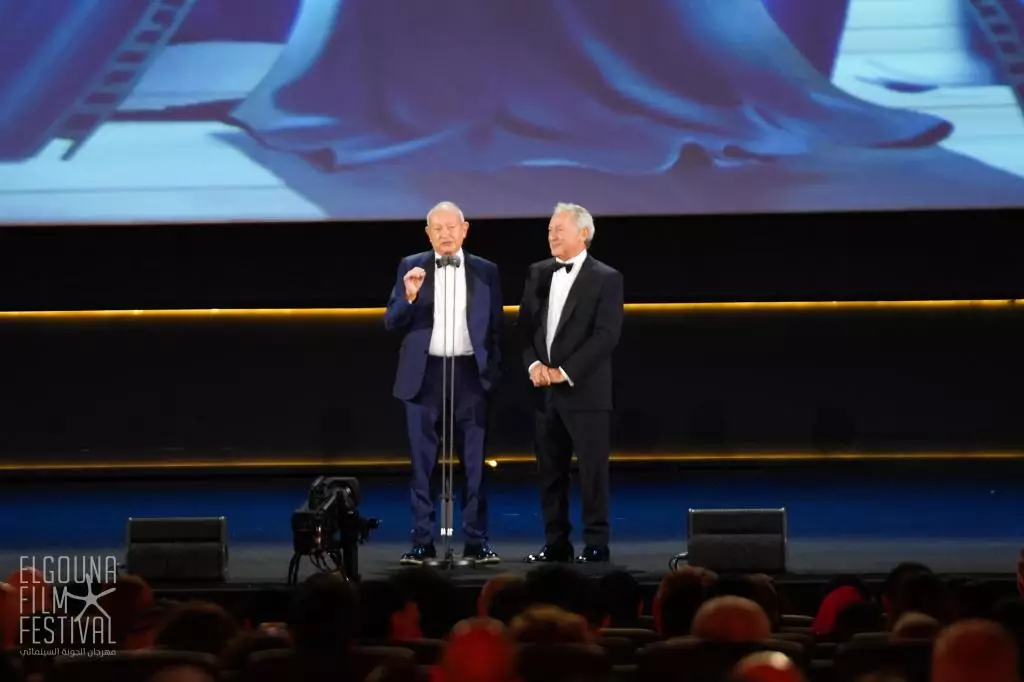The El Gouna Film Festival, known for celebrating cinematic excellence and innovation in the Arab world, faced significant challenges as it opened its seventh edition on October 24, 2023. Amidst a backdrop of geopolitical turmoil and cultural censorship, the festival sought to deliver a platform for filmmakers while addressing pressing social issues. This year, however, the mood was more subdued than in previous editions, reflecting the ongoing hardships faced by people in conflict zones, particularly in Gaza and Lebanon.
The festival’s inaugural screening was marred by controversy when Abdelwahab Shawky’s short film, “The Last Miracle,” was unexpectedly withdrawn from the lineup. Initially set to open the festival, this Egyptian film— imbued with themes of loss and existential reflection— was replaced at the last moment by a different short film, “The Man Who Could Not Remain Silent,” by Croatian director Nebojša Slijepčević, a Cannes Palme d’Or winner. Reports suggest that the Egyptian General Authority for Censorship revoked the film’s screening license just 48 hours before the festival’s commencement, sparking claims of governmental censorship.
A prominent Egyptian film critic, Tarek El Shennawi, speculated about the possible reasons behind the decision, hinting at scenes in the film that could have been perceived as controversial. As the censorship landscape within Egypt continues to tighten, artists find themselves increasingly constrained, questioning the ramifications for creative expression in their works. The film’s themes, rooted in the historical context of the Six-Day War and its ongoing aftermath in Palestinian territories, offer a potent exploration that may have been deemed too sensitive in the current climate.
El Gouna’s shifted atmosphere stood in stark contrast to its previous iterations, which were often marked by glamour, exuberant parties, and celebrity appearances. This year, the absence of an official red carpet and the more subdued dress codes illustrated a collective awareness of the suffering occurring beyond the festival grounds. The founder of the festival, Egyptian businessman Naguib Sawiris, poignantly articulated this sentiment during his opening address, emphasizing a shared human tragedy that transcended national lines.
In a call for unity and peace, Sawiris implored festival attendees and the broader international community to recognize the urgent need for compassion amidst the chaos. He highlighted the harrowing consequences of war not only in Gaza but also in Lebanon, Sudan, and Ukraine. Amidst these appeals for peace, this year’s festival offered a curated selection of 77 films from 32 countries, including much-anticipated premieres like Pedro Almodóvar’s “The Room Next Door.” Such international titles stand testament to the festival’s commitment to promoting diverse narratives, even when competing against an atmosphere of censorship and fear.
Recent events leading up to the festival have cast long shadows on its proceedings. Last year’s festival was postponed in response to escalating violence in the region following Hamas’ attacks against Israel on October 7, 2022. The humanitarian crisis that ensued, resulting in an extensive loss of life and widespread dislocation, continues to resonate with audiences and filmmakers alike. This year, the grim toll in Gaza has escalated exponentially, with staggering numbers of casualties resulting from ongoing military operations.
The festival’s backdrop of escalating conflict serves as a reminder of the power of cinema as both an art form and a critical medium for social discourse. Artistic expressions can foster dialogue about complex issues, transcending political boundaries and illuminating shared human experiences. Efforts to promote such dialogues at the El Gouna Film Festival highlight the integral role that art plays in times of crisis.
The El Gouna Film Festival stands at the intersection of artistic expression and political discourse. Its seventh edition unfolded amid significant challenges: censorship that stifles the voices of artists and the grim realities of conflict affecting millions. However, despite the overshadowing circumstances, the festival remains an essential platform for cultural exchange and reflection. By promoting diverse narratives and addressing urgent social issues, it plays a crucial role in reminding audiences of the power of cinema to inspire hope, empathy, and understanding in a world often divided by conflict. As the festival progresses, the hope remains that it can provide a glimmer of positivity and a poignant reminder of our shared humanity.

